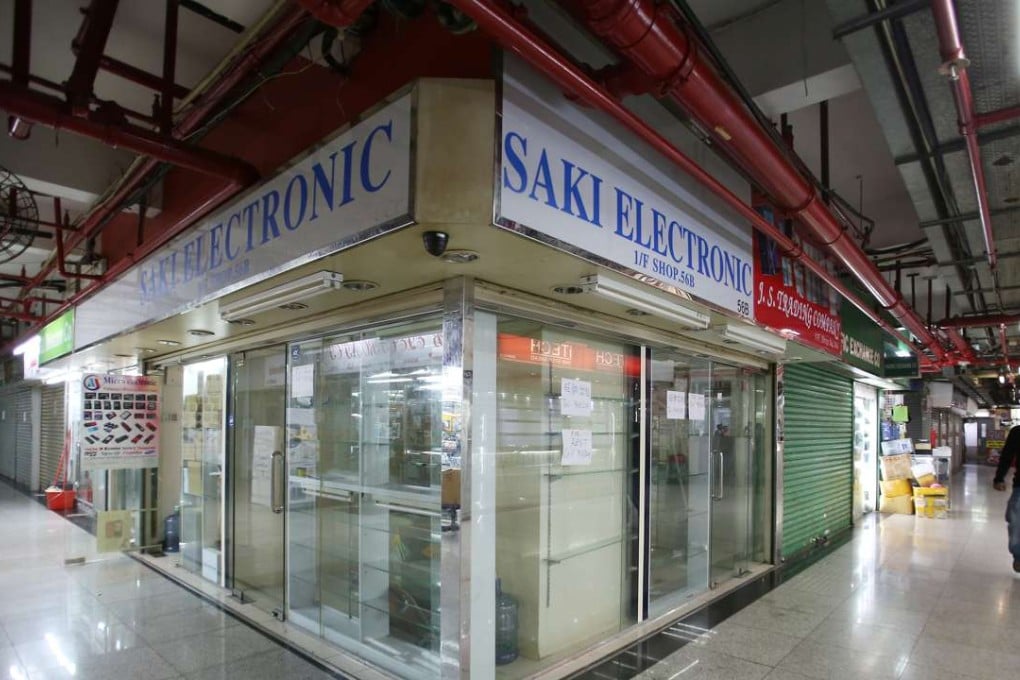Slump shuts shops at Hong Kong’s Chungking Mansions
Rents have plunged and vacancies are high at famous Hong Kong commercial complex, where simply getting a unit was once extremely difficult

Shopfronts lining the arcade on Nathan Road, Tsim Sha Tsui, are mostly vacant and shoppers are few.
Kripalani, the owner of Bob Electronics, recalled that when he first opened his store, business was so good that he “did not have time for lunch”.
He is among dozens of retailers scattered throughout Chungking Mansions, an iconic 55-year-old building near the tip of Kowloon, which travellers on a shoestring budget have long called home.
The building is a trading ecosystem, which for nearly four decades has hosted businesses predominantly owned by ethnic minorities, such as Indians, Pakistanis and those of various African nationalities.
But now, retailers are struggling to stay afloat, blaming unwelcome loiterers and tightening visa restrictions on certain countries for the downturn.